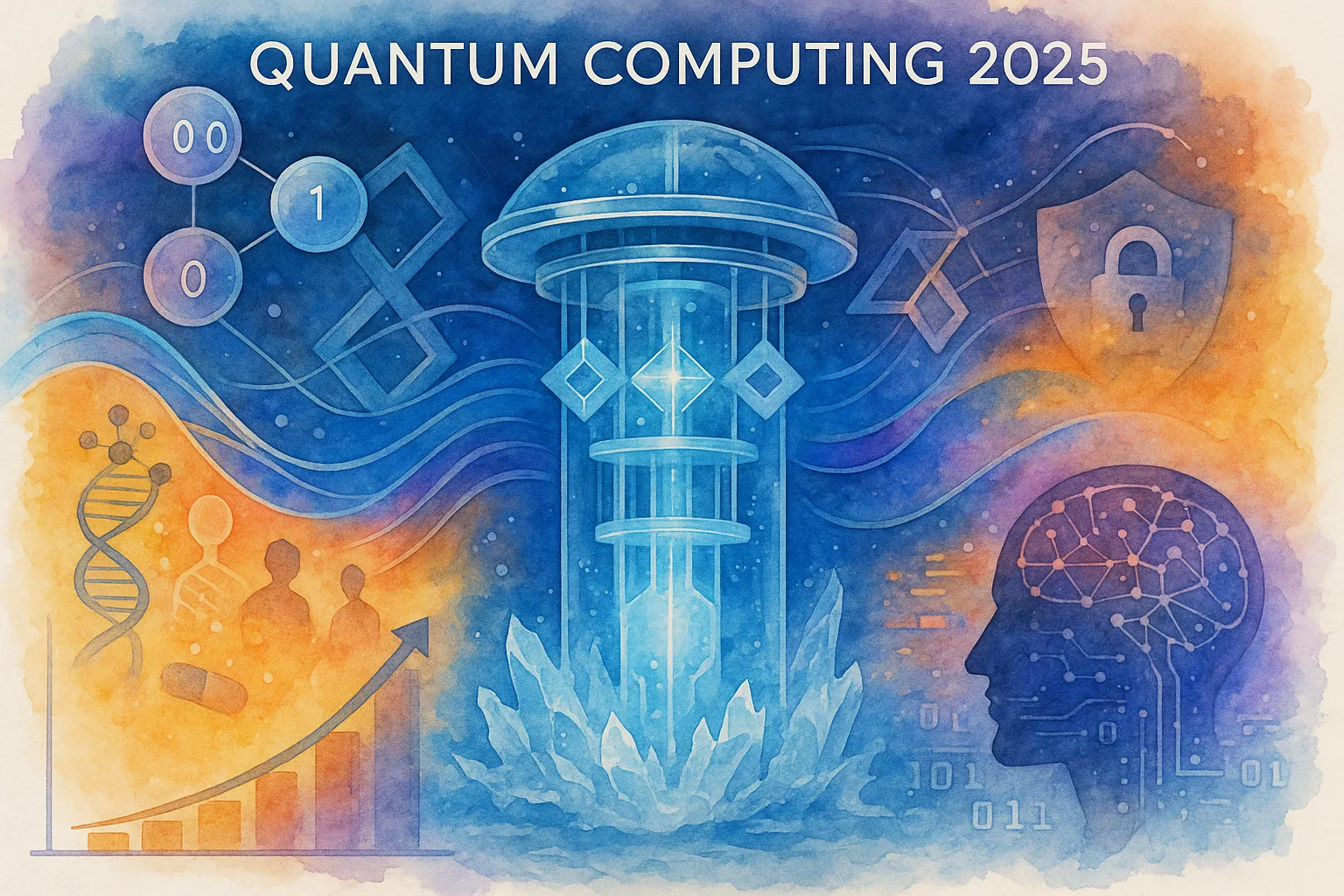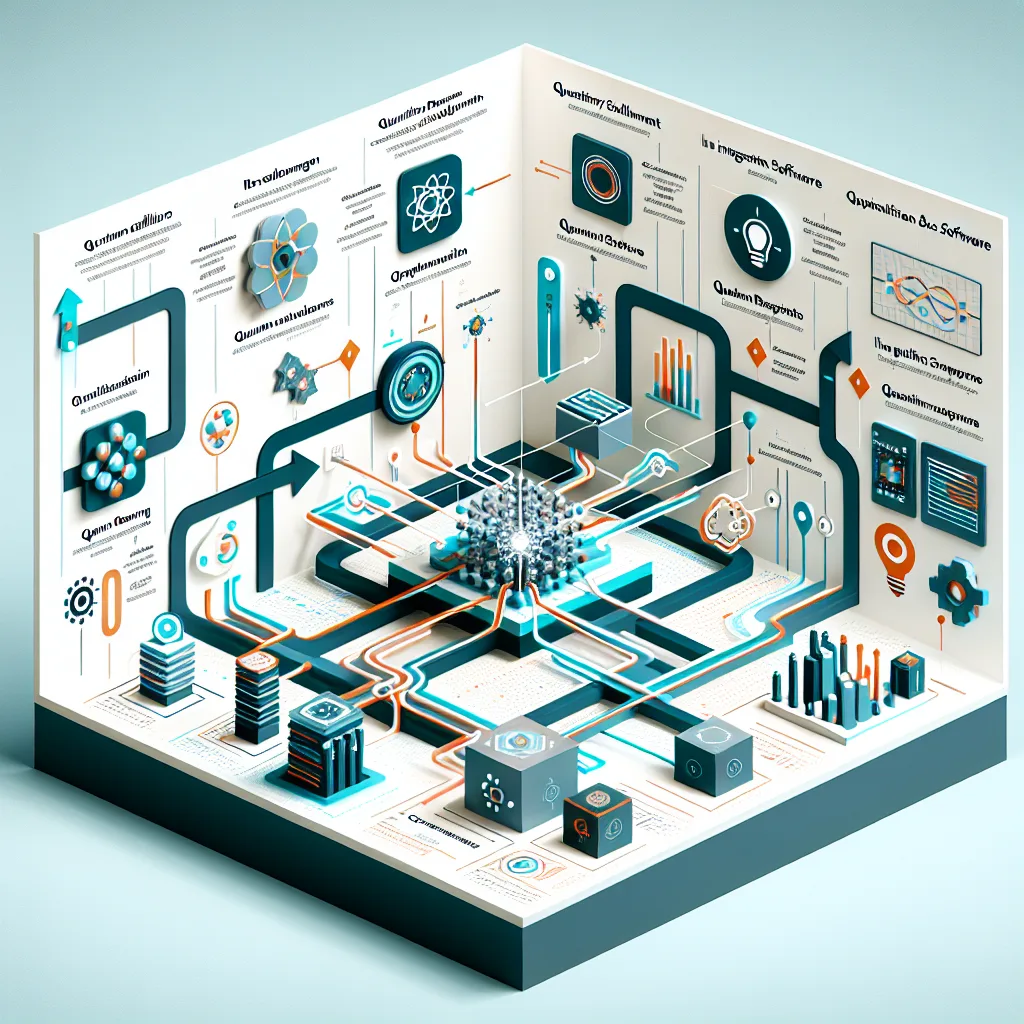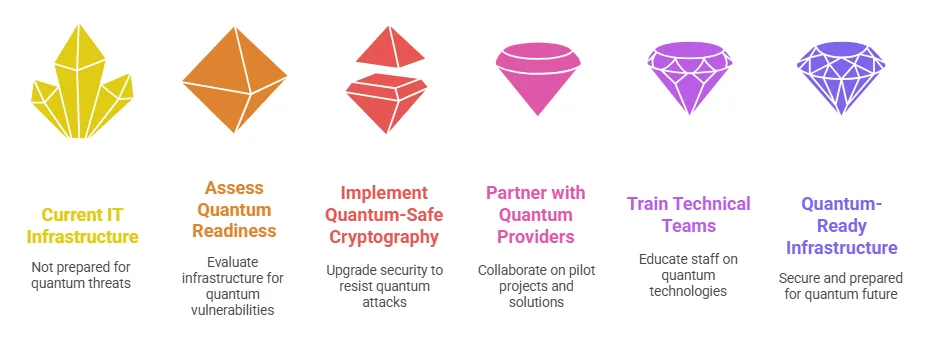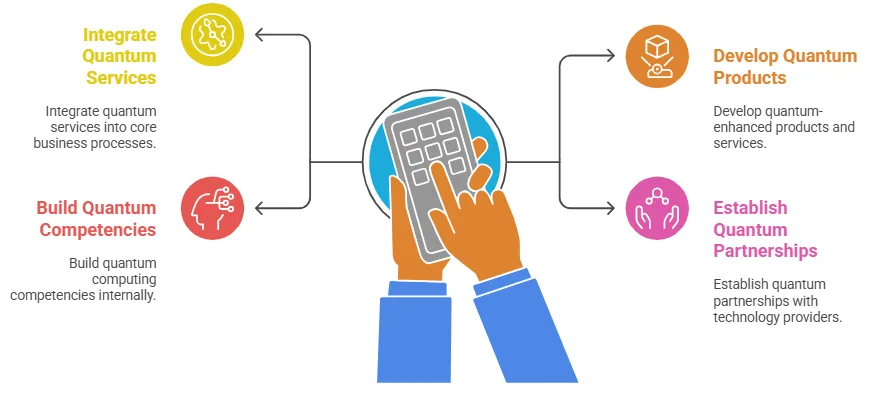Quantum Computing in 2025: The Technology Revolution That’s Finally Here

Table of Contents
Quantum computing transforms from experimental concept to commercial reality in 2025. Discover breakthrough applications, market growth projections, and how this $14.9B industry will revolutionize cybersecurity, AI, and business operations.
The technology landscape of 2025 has witnessed unprecedented breakthroughs across multiple domains, but one emerging trend stands out as the most transformative: quantum computing. After decades of existing primarily in research laboratories, quantum computing has finally crossed the threshold from experimental curiosity to commercial viability.
This revolutionary technology is no longer a distant promise—it’s reshaping industries today and positioning itself as the backbone of tomorrow’s digital infrastructure. From breaking traditional encryption methods to accelerating AI development, quantum computing represents the most significant technological shift since the advent of the internet.
The Quantum Revolution: Why 2025 Is the Breakthrough Year
Market Explosion and Commercial Viability
Traditional computers process information using bits that exist in either 0 or 1 states. Quantum computers leverage quantum qubits that can exist in multiple states simultaneously through a phenomenon called superposition. This allows quantum systems to perform certain calculations exponentially faster than classical computers.
Pro Tip: Think of it this way—while a classical computer checks each door in a maze one by one, a quantum computer can check all doors simultaneously.
The Fundamental Difference
Unlike classical computers that process information using bits as 0s or 1s, quantum computers utilize qubits, which can exist as 0, 1, or a combination of both simultaneously through a property called superposition. This quantum mechanical advantage allows these systems to perform complex computations exponentially faster than traditional computers for specific tasks.
The 6 Game-Changing Quantum Trends Dominating 2025
1. Logical Qubits Experimentation
The biggest breakthrough in 2025 involves logical qubits—error-corrected quantum bits that maintain their quantum properties longer. Unlike physical qubits that lose information within microseconds, logical qubits can operate reliably for practical applications.
Industry Impact: This advancement brings us significantly closer to fault-tolerant quantum computing, making commercial applications feasible.
2. Specialized Quantum Hardware Revolution
Instead of pursuing universal quantum computers, companies are developing specialized quantum processors optimized for specific tasks. This approach delivers practical results faster than waiting for perfect universal machines.
Real-World Applications:
- Financial risk modeling
- Drug molecular simulation
- Supply chain optimization
- Climate modeling
3. Quantum Networking and Connectivity
2025 marks the emergence of quantum networks that connect multiple NISQ devices. This distributed approach multiplies computational power while maintaining quantum advantages.
Note: Early quantum internet prototypes are already demonstrating unhackable communication channels.
4. Software Abstraction Layers
New software platforms are making quantum computing accessible to developers without quantum physics expertise. These abstraction layers translate conventional programming into quantum operations.
Pro Tip: Major cloud providers now offer quantum-as-a-service platforms, making this technology accessible to businesses of all sizes.
5. Workforce Development Acceleration
The quantum talent shortage is being addressed through specialized training programs and educational initiatives. Universities and tech companies are collaborating to build the quantum workforce.
6. Next-Generation Physical Qubits
Breakthroughs in qubit quality and stability are extending coherence times and reducing error rates. New materials and control methods are making quantum computers more reliable.
The Critical Challenges Quantum Computing Faces in 2025
The Encryption Crisis
Quantum computers pose an existential threat to current cybersecurity. When large-scale quantum computers become available, they could break RSA encryption, which protects everything from online banking to government communications.
Implementation Barriers
Skills Gap
The quantum industry faces a massive talent shortage. Current estimates suggest we need 10x more quantum-skilled professionals than currently available.
Pro Tip: Start building quantum literacy in your organization now—even basic understanding will provide competitive advantage.
Business Impact: Who Wins and Who Gets Disrupted

Early Adopters Set to Dominate
Financial Services lead adoption with quantum applications in:
Pharmaceutical Companies are leveraging quantum for:
Industries at Risk
Traditional cybersecurity companies face disruption as post-quantum cryptography becomes essential. Organizations still relying on current encryption standards face severe vulnerability windows.
Investment Opportunities and Market Projections
Market Growth Trajectory
| Sector | 2024 Value | 2030 Projection | Growth Rate |
|---|---|---|---|
| Quantum Hardware | $1.3B | $12.6B | 58% CAGR |
| Quantum Software | $0.8B | $6.2B | 67% CAGR |
| Quantum Services | $0.6B | $4.8B | 52% CAGR |
Key Investment Themes
Quantum-as-a-Service (QaaS) platforms are attracting major investment as they democratize access to quantum computing power without requiring massive hardware investments.
Post-Quantum Cryptography solutions represent a $2.7 billion market opportunity as organizations scramble to quantum-proof their security infrastructure.
How Organizations Can Prepare for the Quantum Future
Immediate Action Items
- Assess Cryptographic Vulnerability: Audit current encryption methods and develop migration timelines
- Build Quantum Literacy: Train key technical staff on quantum concepts and applications
- Explore QaaS Platforms: Experiment with cloud-based quantum services for specific use cases
- Develop Quantum Strategy: Identify potential quantum advantages in your industry
Strategic Partnerships
Pro Tip: Partner with quantum startups or research institutions rather than trying to build capabilities in-house. The technology is evolving too rapidly for most organizations to keep pace independently.
Regional Quantum Competition and Government Initiatives
Global Quantum Race
Implementation Roadmap for Businesses
Short-term Actions (2025-2026)

- Assess quantum readiness of current IT infrastructure
- Implement quantum-safe cryptography to prepare for Q-Day
- Partner with quantum service providers for pilot projects
- Train technical teams on quantum concepts and applications
Medium-term Strategy (2027-2030)

- Integrate quantum services into core business processes
- Develop quantum-enhanced products and services
- Build quantum computing competencies internally
- Establish quantum partnerships with technology providers
Frequently Asked Questions
Q: When will quantum computers replace traditional computers?
A: They won’t completely replace classical computers. Quantum computers excel at specific problems like optimization and simulation, while classical computers remain superior for everyday computing tasks. Think complementary, not replacement.
Q: Should small businesses worry about quantum computing in 2025?
A: Yes, but focus on the cybersecurity implications first. Start planning post-quantum cryptography migration and explore QaaS platforms for competitive advantages in optimization problems.
Q: How much does quantum computing cost to implement?
A: Physical quantum computers cost $10M+, but cloud-based quantum services start at $100-1000 per hour of compute time. Most organizations should start with cloud access.
Q: What skills are needed for quantum computing careers?
A: Combine physics/mathematics background with programming skills. Python, quantum programming languages (Qiskit, Cirq), and understanding of quantum algorithms are increasingly valuable.
Q: How secure is quantum communication?
A: Quantum communication offers theoretically unbreakable security due to quantum physics laws. However, practical implementations may have vulnerabilities that need careful management.
Q: Which industries will see quantum computing impact first?
A: Financial services, pharmaceuticals, logistics, and cybersecurity are seeing immediate applications. Manufacturing and energy sectors will follow within 3-5 years
The Road Ahead: What 2026 and Beyond Hold
The quantum computing landscape of 2025 represents just the beginning of a technological revolution that will unfold over the next decade. As logical qubits become more stable and quantum networks expand, we’ll see the emergence of quantum-classical hybrid systems that combine the best of both computational paradigms.
Organizations that begin their quantum journey now—through education, experimentation, and strategic planning—will be positioned to capitalize on the unprecedented opportunities that quantum computing creates. Those that wait risk being left behind in a world where quantum advantage becomes quantum necessity.
The quantum future isn’t coming—it’s here. The question isn’t whether quantum computing will transform your industry, but whether you’ll be ready when it does.
Stay ahead of the quantum revolution by bookmarking this guide and sharing it with your team. The organizations that act on quantum computing today will lead their industries tomorrow.
IF YOU REACH AT END, GO GIVE A LOOK AT blogs ON OUR MAIN website.
